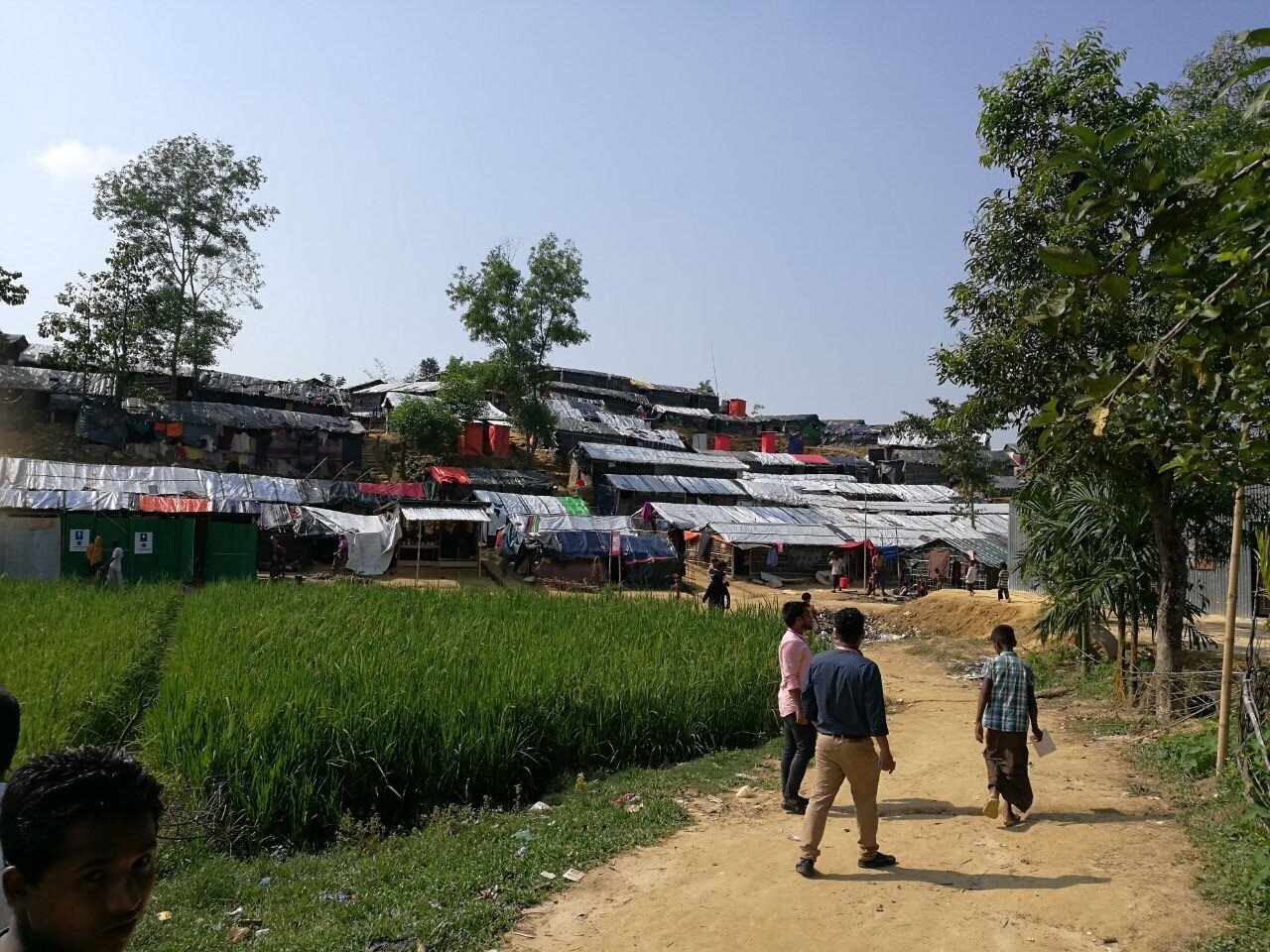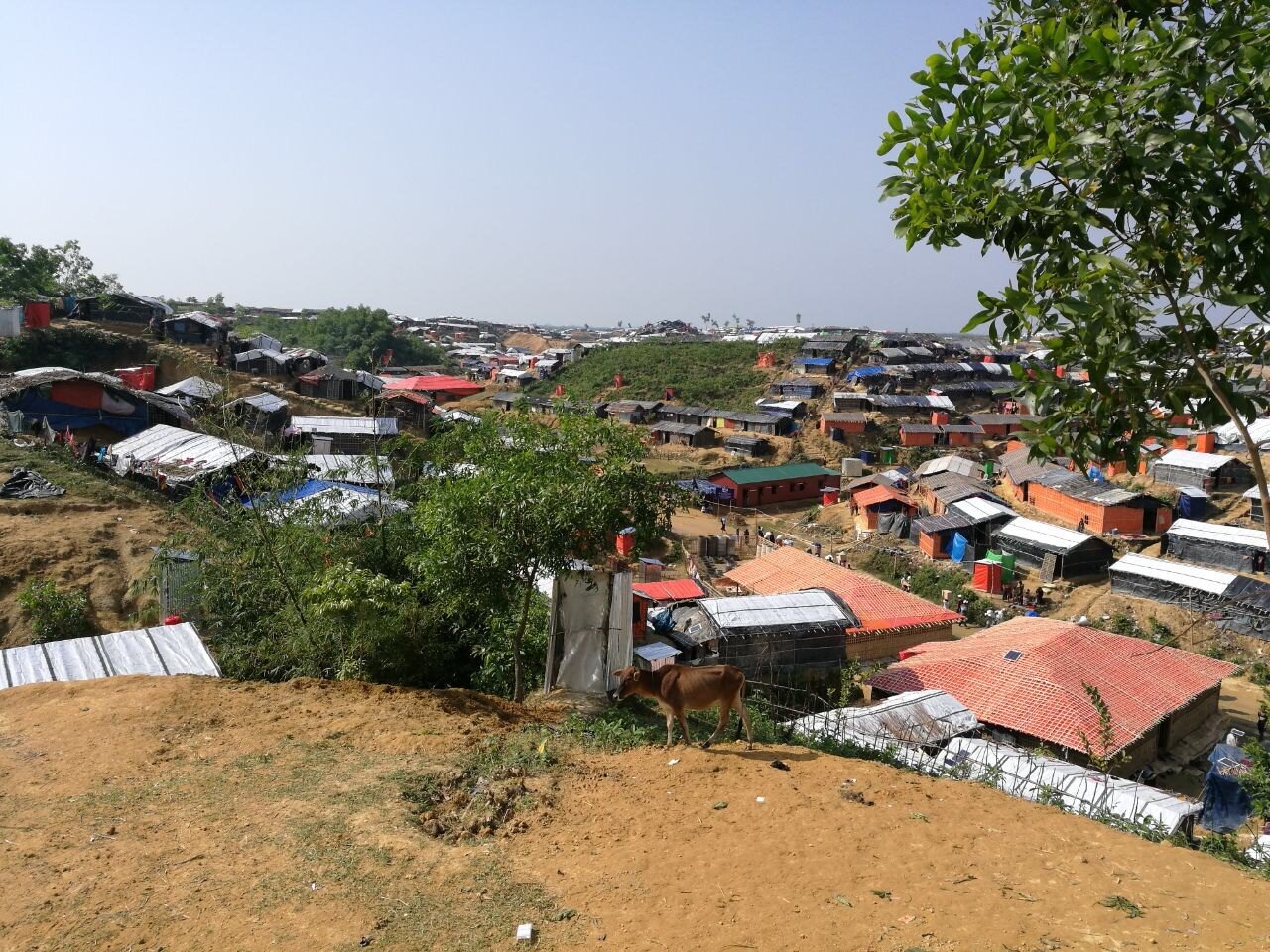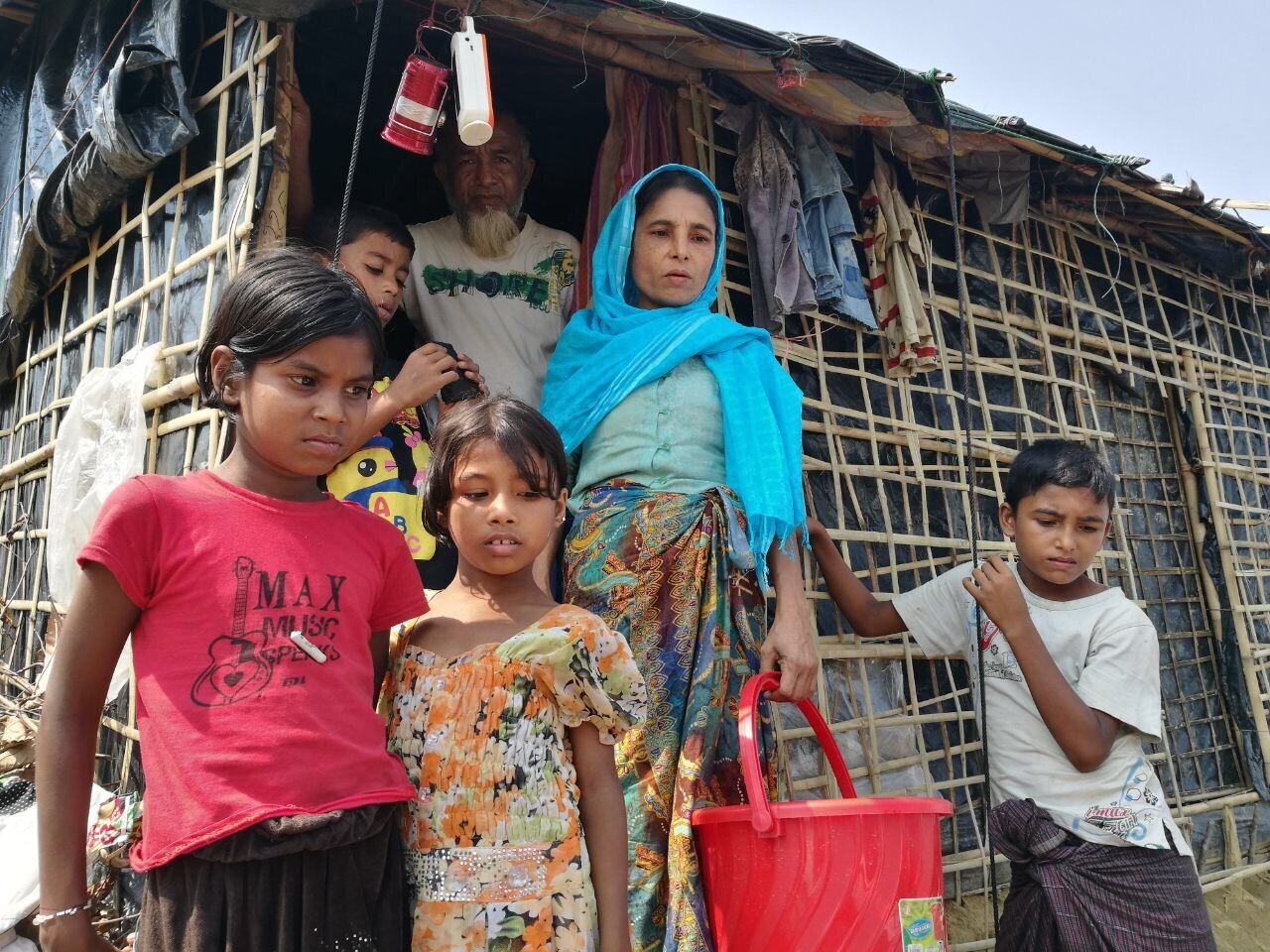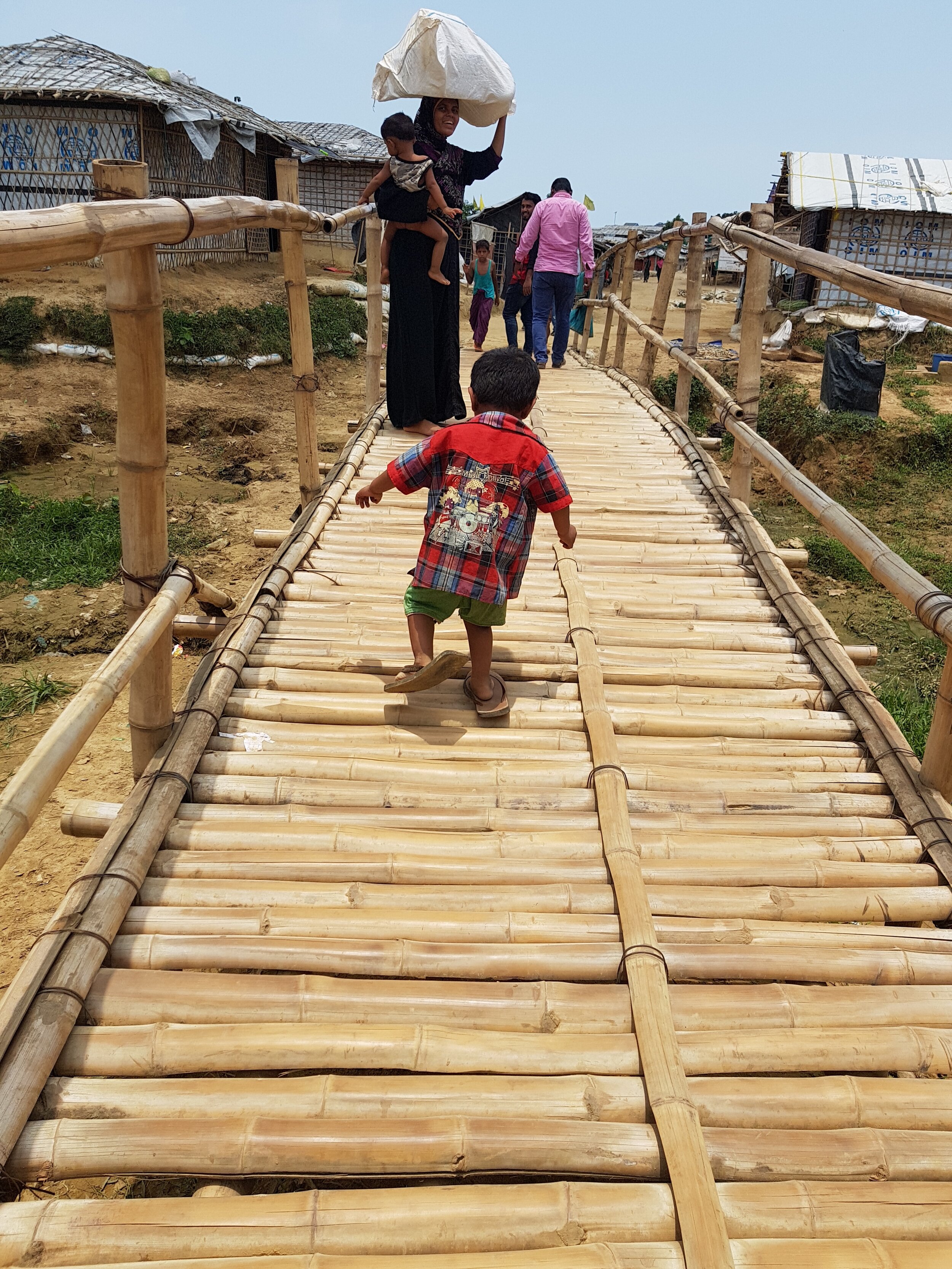Mid December marks the start of winter in Bangladesh. The nights are longer than the days, the mornings are cooler, and there’s generally little rainfall.
Elsewhere in the country, the trees will shed their leaves. But in the world’s largest refugee settlement, in Cox’s Bazar in the south east of the country, there is little green to be seen. The steep dusty hills, recently deforested, are prone to cyclones. And as far as the eye can see, there are thousands upon thousands of bamboo and tarpaulin huts on the slopes. The Rohingya occupants live in a harsh, stressful environment.
Since August 2017, Bangladesh has received nearly a million people from Myanmar. The Rohingya, a minority Muslim group, have been forced to flee, to escape escalating violence and conflict in their home country. In the military clearance operation against them, widely regarded as ethnic cleansing, thousands of Rohingya were killed. Those who succeeded in escaping the terror arrived in Bangladesh in a vulnerable, wounded and emotionally abused state. The crisis demanded immediate and ongoing relief support to meet their basic needs.
More than half of the total refugee population are children. Many of them have experienced, and continue to experience, severe mental distress. In addition, their mothers and other women they know often face gender-based violence. To support the children and women in the camps, UP has established a number of ‘Women and Child Friendly Spaces’ over the past year. In a noisy, hostile and sometimes violent environment, these communal areas provide a safe space for children to learn through play and fun, and for women to access mental health care, advice, community learning and peer support.
Yet while these safe spaces are perhaps best known for their work with women and small children, there’s also a growing dimension of youth work in the refugee camp.
Youth clubs
In keeping with tradition and expectations of the Rohingya, separate clubs have been established for male and female youth.
Above: This building is one of 25 communal areas, or ‘safe spaces’, that UP has established.
At one of the clubs, we had the opportunity to speak to some of the members through a translator. The girls told us that in general, they have fewer chances than their male peers to take part in these ‘friendly social spaces’. Traditionally, young women are expected to stay inside their homes all day long. Now, however, once they have finished their household chores, these particular girls are allowed to join the afternoon sessions.
As Sumaya bibi explained:
“When our parents found out that we get good information about how to stay safe and secure, how we can protect ourselves from being abused and how to practise personal hygiene, they did not restrain us from going to the club.”
Her friend, Ismot Ara, added:
Above: Ismot Ara
“I found it very easy to convince my family as they know I am doing something good for me and for others. But there is still a challenge to change the behaviour and perception of the community. It takes a long time to encourage new ideas, understanding and practices.”
Some of the clubs have been running awareness-raising sessions to address the risks for women and girls in the community. Outreach meetings deal with protection issues, including the negative impact of child marriage, dowry, child labour and human trafficking. Sessions have also dealt with reproductive health, water, sanitation and hygiene, and gender-based violence.
Young people not only learn for themselves, but they also have a role to play in sharing what they have learnt more widely in the camps. Given that there are no schools in this settlement of one million people, these awareness-raising are crucial. They are a real lifeline for the Rohingya youth.
Peace-building between different communities
As well as the clubs in the camps, United Purpose has also supported youth forums that bring together young Rohingya with their Bangladeshi counterparts from the surrounding area. Given the large numbers of Rohingya people arriving from Myanmar, and the potential for conflict and tension between refugees and the host communities, this project aims to build bridges and positive relations between the two groups.
Through Leadership Training sessions, the young people involved have been learning how to resolve conflict through non-violent means, helping build peace in and between their communities. Sports, arts and cultural events are all creating trust and understanding. The aim is to nurture the resilience, confidence, skills and knowledge of the young people.
United Purpose has been running projects in the Rohingya refugee camps since January 2018, with the support of different international donor agencies, including Penny Appeal. We have worked in this region of Bangladesh for over 25 years and are highly trusted by the Government and local communities. To learn more about our work with Rohingya refugees, take a look at our project summaries here. Or, head over to our blog where Hannah, our Global Director of External Affairs, shares a personal account of her trip to the camp.









